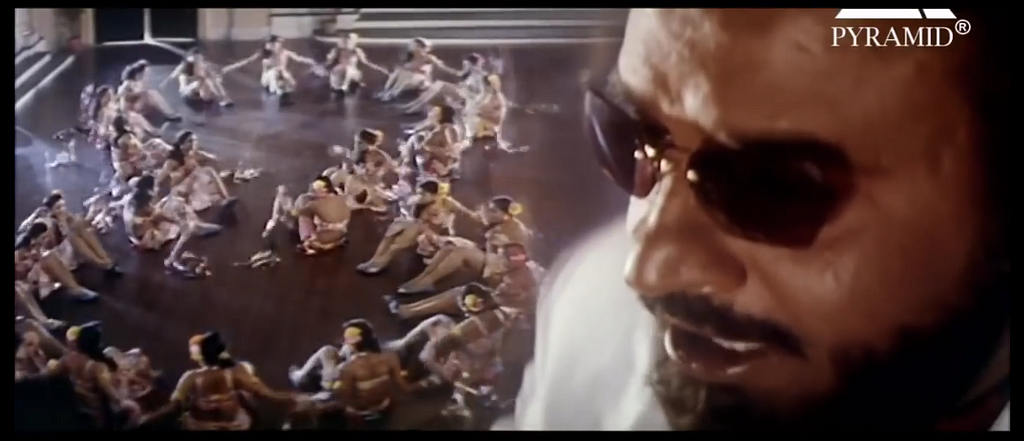Latest news about Bitcoin and all cryptocurrencies. Your daily crypto news habit.

Today marks the end of the eighth year of my professional career. It has been a trying one with many ups and downs, and a lot of silence. Feels like the right time I spent introspecting on things and if I have been able to contribute something of value in the past years. So hey, maybe worth writing about.
 Credits —Whoever owns the rights to Baasha. Feeding into the Kaala frenzy.
Credits —Whoever owns the rights to Baasha. Feeding into the Kaala frenzy.
Disclaimer — Highly opinionated self-critique of my past, present, and future professional career.
The good stuff
That I somehow ended up having. Stumbled on it mostly.
- Choosing people over anything else. Coming from me it may sound ironic, but people are the core of everything. Spending 70% of your life, i.e. work life, with people you don’t like or respect is not worth it no matter what the upside is.
- Learning early on that Technology is a tool, it would not be wise to get into a relationship with it.
- Having enough people who challenge me and also let themselves be challenged in things that matter.
- Learning the question matrix early on, enabling to ask the most relevant of questions to get to the crux, online or offline with people.
- Turns out that I like teaching and giving “tech-talks”. Having opportunities to address/train a decent sized audience, with sufficient stage fear.
- Making it a point to know the entire platform from the code without depending on people, just so I can move faster in what I had to do. Roles don’t matter.
- Attending the Yahoo hack day, and learning that it doesn’t matter as much what you know/do versus what you say. Totally disillusioned by hackathons ever since.
- Revisiting expectations, companies may come and go, but relationships stay with you.
The bad stuff
Of course, there is bad stuff.
- When making a point, I came off as someone who argues for the sake of arguing. That wasn’t the case, but that’s how it was seen. A little bit of oiling could have made life easier for everyone involved.
- Impatience with people. Hard to reach. Especially for people looking to learn from me.
- Taking off for a month without a heads-up (Not the first time either, but different places, different time. Also not really taking-off, was in bed all the while, depressed et al). Throwing everyone off their plans. Thankfully I was taken back in without second thought both times, and haven’t looked back since *touches wood*.
- 80% of my StackOverflow rep came from a fortnight in 2015 when I set a rep challenge to my team. The bad thing is I have asked 0 questions in SO, and haven’t answered anymore after that. That is not okay.
- Absorbing complexity from my code. People who go through my code have difficulty understanding it as I optimized for execution rather than readability. Not sure if it is a bad thing actually, perhaps to be improved, but maybe not. Subjective at best.
- Starting “Thank God It’s Saturday!” for showcasing internal successes. But not fully vesting into it, could have been a good way for growing internally.
- Carrying forward from the above, talking about what we have done was never the focus. Maybe a certain insecurity to not being applauded for it or just a twisted idea of being humble.
Going forward
I have started addressing a couple of those bad stuff already. But there is a long way to go.
Spending some more time, looking at closer, I asked myself - Is that all the good stuff? Anything worthy of mention? Come on, 8 years of it. I dove deep into the past, not including the last couple of years.
 Source — Giphy
Source — Giphy
The most important lesson is to overcome this weird insecurity/“being humble”.
It became clear that it doesn’t matter if you have —
- Built an API driven mobile UX library that has multiple successful enterprise deployments under its belt.
- Designed a slick JIT compiled back-end service that allows custom services to be written without redeployment, at enterprise-level scale. We are talking >1K+ RPM on a tiny little node back in 2014, if memory serves me right.
- Dealt with cross-platform web when most everyone was talking native, still do, painfully so. There are only so many apps users will install.
- Helped build a “webpack” framework before there were any “webpack” or PWAs.
- Helped win one of the best Cloud startups from Amazon CTO Dr. Werner Vogels (Hate throwing names at you, my dear reader, probably the only one in this post, sorry.)
- Trained over hundreds of students and partner developers on the platform and cloud technology.
- Built some cool stuff like run Javascript in background threads on mobile (Android 2.2+, the Froyo and above) before it became popular.
Unless you talk about it and share it around, you will end up trying to convince the world that you have what it takes, instead of spending the time actually doing “it”. It matters because that increases your opportunities to do amazing things. Also because, if you don’t, someone else will. It is a great way of positive reinforcement and opening oneself to external critique.
If I had done a good job of that, the above list would have been in “the good stuff” section. The list is not the most awesome one out there, nor a complete one, but it is definitely worth it. Here is to breaking the cycle.
Okay, enough about me
Enough narcissism for 8 years. Time for some quotes from real conversations. These conversations have literally been a few turning points in my life, slightly paraphrased from memory. Hope it will help some others on the internet someday.
“Don’t do your company any favors. You are not doing yourself any favors by doing that. It is the right thing to expect things from your colleagues.” —
When I started whining, after demo-ing something, that I considered buggy, to customers, and didn’t bring it up as workable feedback beforehand.
“Share knowledge. As much as you can. Knowledge grows by sharing, it never diminishes in value. When you dispense it, it makes you trustworthy in that.” —
When I was pissed off at a client wanting to know everything for free.
“We are selling a vision, we are not done building everything out. If we already had everything, it won’t be a startup. It is always important to know the difference. You don’t have to feel guilty about it, as a startup, you have always been selling the vision, nothing more.” —
When I was annoyed about selling features we hadn’t built yet.
“Having an active outside-work life is most important. At the end of the day, that’s where you are going to go back to.” —
When I needed to take a break but didn’t know it.
“Long-term solutions are pointless if you are not able to survive the next week” —
When the purist in me needed to be shut down and was taught a lesson in reality.
“Don’t be perfect. It leaves no room for improvement that comes over time.” —
When I was irritated at not being able to finish everything I intended to. I think of it like letting food marinate for a while before cooking it. If cooked too fast, won’t have the same quality.
Thankful to all for taking the time to have those conversations with me. Thankful to those who had more patience than me with me.
I don’t think the who-said-it is important in this post, only the content.
Comparing things at the crack of this decade to now
Then — I was fresh and immature, coming off a laid-back college life.
Now — I can barely wait for an early start on a Monday morning.
P.S: Hey, Thank you for coming this far. We at Swym are actively looking to work with cool people like you if interested :)!
P.P.S: After writing all of it I realized, I could have made it sound like “8 things…”, ah well *shrugs*.
Eight years in tech was originally published in Hacker Noon on Medium, where people are continuing the conversation by highlighting and responding to this story.
Disclaimer
The views and opinions expressed in this article are solely those of the authors and do not reflect the views of Bitcoin Insider. Every investment and trading move involves risk - this is especially true for cryptocurrencies given their volatility. We strongly advise our readers to conduct their own research when making a decision.